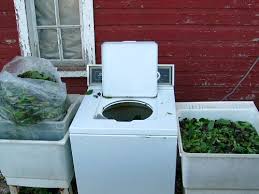A preschool-aged girl was taken to the hospital after she drank an unknown amount of hand sanitizer out of a 64-ounce bottle, fell and hit her head, the U.S. Centers for Disease Control said.
 Her blood alcohol level was .27% — over 3 times the legal limit in most states, according to the CDC. The little girl recovered and was released 48 hours later, but her case illustrates the sharp increase in poisoning reported during the rise of the coronavirus in the United States.
Her blood alcohol level was .27% — over 3 times the legal limit in most states, according to the CDC. The little girl recovered and was released 48 hours later, but her case illustrates the sharp increase in poisoning reported during the rise of the coronavirus in the United States.
Between January and March there were 45,550 poisonings reported to U.S. poison control centers , which is a 20% increase from years passed, the CDC reported. The rise in cases directly correlates with increased media coverage of the coronavirus pandemic in the U.S., according to the CDC.
Children ages 5 and younger, who were poisoned by disinfectants like hand sanitizer, made up nearly half of calls involving disinfecetants in that time period, the CDC reported. Over 80% of calls involved people ingesting disinfectants, according to the CDC.
In response, the U.S. Food and Drug Administration is calling on the manufacturers to add a bitter ingredient to sanitizers so people will be less likely to drink them.
People are also calling more to report poisonings involving cleaners like bleach — more than 28,000 calls in that three-month period involved cleaners, News 4 San Antonio reported. The CDC cited a case where an adult woman soaked her produce in bleach, vinegar and hot water, and ended up in the hospital because she inhaled the toxic fumes.
The CDC says people should not wash produce with anything other than water, not even soap.
Researchers say they can’t show a direct link between chemical exposures and the coronavirus pandemic yet, but the correlation is alarming, Science Alert reported. The biggest surge in calls to poison control centers occurred at the beginning of March this year, according to Science Alert.
In Oregon, one of the most reported issues was people mixing bleach with water in a random container, like a soda can or water bottle, and leave it out in the open, KOIN 6 reported. Another household member will drink the solution, thinking it’s just water, according to KOIN 6.
After President Trump’s suggestion that ingesting cleaning products or applying a “very powerful light” to the body to kill the coronavirus, Lysol, the Centers for Disease Control, lawmakers, doctors, and Twitter users warned people not to do so.
“I see the disinfectant where it knocks [the coronavirus] out in a minute, one minute,” Trump said during a daily White House coronavirus briefing last week. “And is there a way we can do something like that by injection inside, or almost a cleaning? Because you see it gets in the lungs, and it does a tremendous number on the lungs. So it’d be interesting to check that.”
No, it wouldn’t. And by Friday, Lysol, the CDC, and others stepped in to emphasize that you should not drink or inject disinfectant.
The CDC tweeted, “Household cleaners and disinfectants can cause health problems when not used properly.” While Lysol took a more firm stance in response to “recent speculation and social media activity.”
“As a global leader in health and hygiene products, we must be clear that under no circumstances should our disinfectant products be administered into the human body (through injection, ingestion, or any other route.)”
When pressed about the remark during a bill signing last Friday, Trump claimed, “I was asking a question sarcastically to reporters like you just to see what would happen.”
Kids bored during the coronavirus lockdown have been warned to steer clear of the toxic TikTok “nutmeg challenge”.
Just a teaspoon of the cooking spice can “cause significant stomach pain, vomiting, racing heart, confusion, drowsiness, agitation and hallucinations,” say poison experts.
One girl who filmed herself swigging 12g of nutmeg from a cup said it “didn’t taste bad”.
In an update “three hours later” on its effects she claimed: “I can’t move my head.
“It’s like superglued to the wall; I’m so confused, oh my God.”
The New South Wales Poisons Centre in Australia warned parents about kids ingesting the potentially lethal spice on TikTok and social media.
On Facebook, it described the video sharing service’s nutmeg challenge as a “dangerous game”.
And in Ireland, a warning has been issued on fly infestations ahead of the summer months. Due to the current lockdown restrictions, many buildings, such as offices, shops and some homes, may be empty, allowing pests to proliferate.











